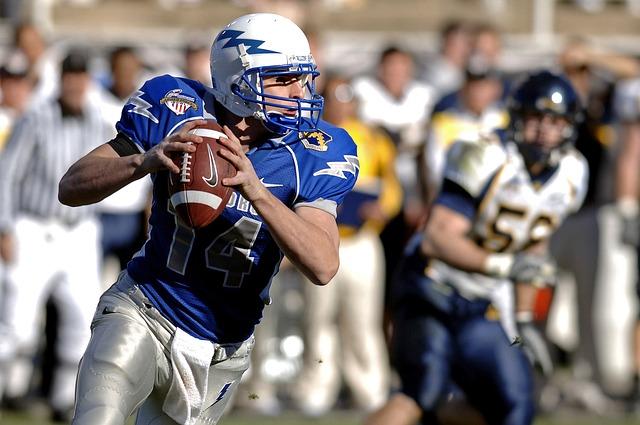In recent years, the world of extreme sports has captivated audiences with its blend of adrenaline, daring, and remarkable feats of human capability. From the vertiginous heights conquered by rock climbers to the tempestuous waves tamed by surfers, these athletes push the boundaries of physical endurance and skill. However, beneath the surface of this exhilarating pursuit lies a growing concern: the mental health challenges faced by extreme sports athletes. As the stakes grow higher and the pressure to perform intensifies, these individuals often grapple with psychological stressors unique to their high-risk endeavors. This article delves into the intricate landscape of mental health within the realm of extreme sports, exploring the factors that contribute to these challenges and examining the support systems—or lack thereof—available to those who navigate the fine line between triumph and turmoil. Through an analytical lens, we aim to uncover the often overlooked psychological battles that accompany the pursuit of extreme athletic excellence.
Understanding the Psychological Impact of Extreme Sports Participation
Extreme sports athletes often push the boundaries of human capability, confronting physical and psychological challenges that are unique to their disciplines. The thrill of participating in these sports is frequently accompanied by a spectrum of mental health challenges. Research indicates that the high-risk nature of extreme sports can lead to elevated levels of adrenaline and cortisol, which may contribute to anxiety and stress. However, the psychological impact is not universally negative; many athletes report a heightened sense of self-awareness and resilience.
Despite these potential benefits, the mental health risks cannot be overlooked. Key challenges faced by extreme sports athletes include:
- Risk of Injury: The constant exposure to potentially life-threatening situations can lead to chronic stress or PTSD.
- Pressure to Perform: The demand for peak performance can exacerbate anxiety and lead to burnout.
- Isolation: The individualistic nature of many extreme sports can result in feelings of loneliness.
Addressing these issues requires a comprehensive approach, including mental health support and awareness within the extreme sports community.

Identifying Common Mental Health Challenges Among Extreme Sports Athletes
Extreme sports athletes often push the boundaries of human capability, navigating high-risk environments that demand both physical prowess and mental resilience. However, the intense pressure and constant adrenaline rushes can contribute to a unique set of mental health challenges. Anxiety and stress are common among these athletes, often stemming from the high stakes of their activities and the fear of failure or injury. The need for continuous performance improvement can lead to overwhelming stress levels, making it crucial for athletes to develop effective coping strategies.
Depression can also be a significant issue, especially during off-seasons or after an injury, when athletes might experience a loss of identity and purpose. Furthermore, the culture of extreme sports often glorifies toughness and self-reliance, which may discourage athletes from seeking help. Isolation is another challenge, as the niche nature of these sports can lead to feelings of being misunderstood by those outside the extreme sports community. To address these issues, it’s vital to foster a supportive environment where athletes feel empowered to prioritize their mental health.
- Anxiety – Driven by high stakes and performance pressure.
- Depression - Often occurs during inactivity or post-injury.
- Isolation – Results from niche sports environments.

Strategies for Supporting Mental Well-being in High-risk Athletic Environments
In the intense world of extreme sports, athletes often encounter unique mental health challenges due to the high-stakes nature of their pursuits. It is crucial to implement effective strategies that prioritize their mental well-being. Here are some approaches that can make a significant difference:
- Creating a Supportive Community: Building a network of fellow athletes, coaches, and mental health professionals can provide essential emotional and psychological support. This community can foster open discussions about mental health, reducing stigma and encouraging athletes to seek help when needed.
- Incorporating Mindfulness and Stress Management Techniques: Techniques such as meditation, yoga, and deep-breathing exercises can help athletes manage stress and anxiety. These practices can be integrated into training routines to promote mental resilience and focus.
- Access to Professional Mental Health Resources: Ensuring that athletes have access to therapists and counselors who understand the unique pressures of extreme sports is vital. Regular mental health check-ins can be as important as physical health assessments in maintaining overall well-being.
By adopting these strategies, high-risk sports environments can become spaces where mental health is as prioritized as physical performance, paving the way for healthier and more sustainable athletic careers.

Implementing Effective Mental Health Programs for Extreme Sports Professionals
In the high-octane world of extreme sports, mental health challenges are often overshadowed by the adrenaline rush and physical prowess these athletes display. However, implementing effective mental health programs is not only crucial but necessary for sustaining their long-term performance and well-being. Tailored mental health initiatives that consider the unique pressures faced by extreme sports professionals can make a significant difference. These programs should focus on:
- Stress Management: Techniques to manage the intense pressure of competition and the fear of injury.
- Resilience Training: Building mental fortitude to bounce back from setbacks and failures.
- Peer Support Networks: Establishing communities where athletes can share experiences and strategies for coping.
- Access to Professional Counseling: Regular sessions with psychologists who specialize in sports psychology.
By integrating these elements into a comprehensive mental health strategy, sports organizations can help athletes not only thrive in their careers but also maintain a healthy balance in their personal lives. It’s about creating a supportive environment where mental health is prioritized as much as physical fitness.










